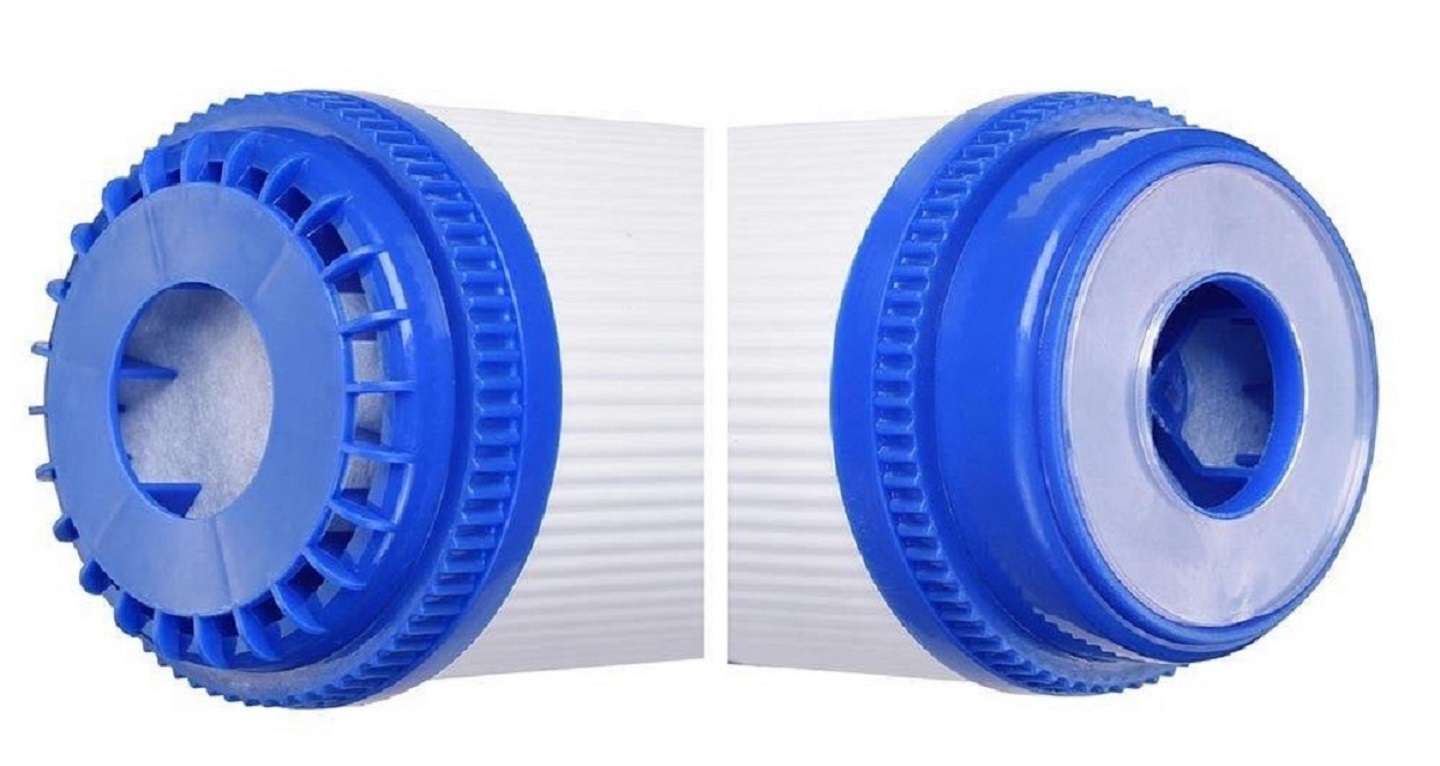
What is a granular carbon filter and its role in water purification
A granular (powdered) carbon filter, also known as an ultrafine depth filtration (UDF), is the second stage in a home water filter.
Made of activated carbon granules, this filter removes chlorine and some chemical contaminants such as trihalomethane, removes color, odor, and bad taste of water, and makes water transparent. It is one of the most important filters used in domestic and semi-industrial water purifiers and some industrial water purifiers.
The role of granular carbon filter in water purification
As the name suggests, this filter contains grains with very, very small holes made of carbon. In contact with water, water enters all pores and comes into contact with carbon. The carbon inside this filter must be active to react with the chemicals and chlorine derivatives in the water. Its importance lies in:
- It works to reduce some heavy metal pollutants in the water.
- The activated carbon in the filter also has a great effect on removing hydrogen sulfide in the water, which causes a very unpleasant taste and odor.
- It is also able to remove many particles as small as 0.5 microns in diameter that cause the water to become cloudy.
Contaminants that the carbon filter does not remove
Some of the salts include hardness, arsenic, asbestos, copper, nitrates, sulfates, and many other types of contaminants. Reverse osmosis or distillation equipment is used to remove said contaminants.
Granular activated carbon filters are not suitable for removing sediment and dissolved substances in water. Because the adhesion of these materials to the surface of the activated carbon filter reduces the level of the carbon’s ability to purify the water and significantly reduces its efficiency. For this reason, pre-filtration filters are commonly used to absorb sediment, usually propylene.
These filters increase the efficiency of carbon filters and extend their lifespan.
Keep in mind: carbon alone can purify water, but activating it increases the level of efficiency and thus purifies the water better than chemicals.
The importance of a granular carbon filter
When suspended particles, such as sand and mud, are separated from the water with a precision of 5 microns or 1 micron (depending on the fiber filter used), the water is optically purified. However, the chemicals and pollutants in the water must be treated and removed.
The granular carbon filter has a great ability to remove chemicals. For example, water is chlorinated to disinfect it. Although chlorination is widely required throughout the world for the disinfection procedure. Some people may want to remove the chlorine in their water and not want to use chlorine for drinking.
So it is necessary to dechlorinate. In addition, agricultural pesticides and pesticides used on trees are washed away when it rains and enter the groundwater. In large cities, too, there is smoke from cars and industrial plants. And lead and other chemical pollutants are present in large quantities in the air. Many water purification experts believe that all these pollutants in the air are washed away by rain and enter the water, making it easier to pollute aquifers. Car wash detergents in car washes, carpets in car washes, and even bathrooms and dishwashers are also chemical pollutants. All of these chemical pollutants dissolve in water and combine with water to enter sewage and eventually into aquifers, rivers, and seas.
Factors for selecting the ideal candidate
Since the granular carbon filter plays an important role in the water purification process, care must be taken when choosing it:
- Dealing with a company with great credibility and experience in the market.
- Ensure the availability of periodic maintenance and continuous follow-up.
- Quality and availability of customer service at all times.
- Check the warranty period.

























